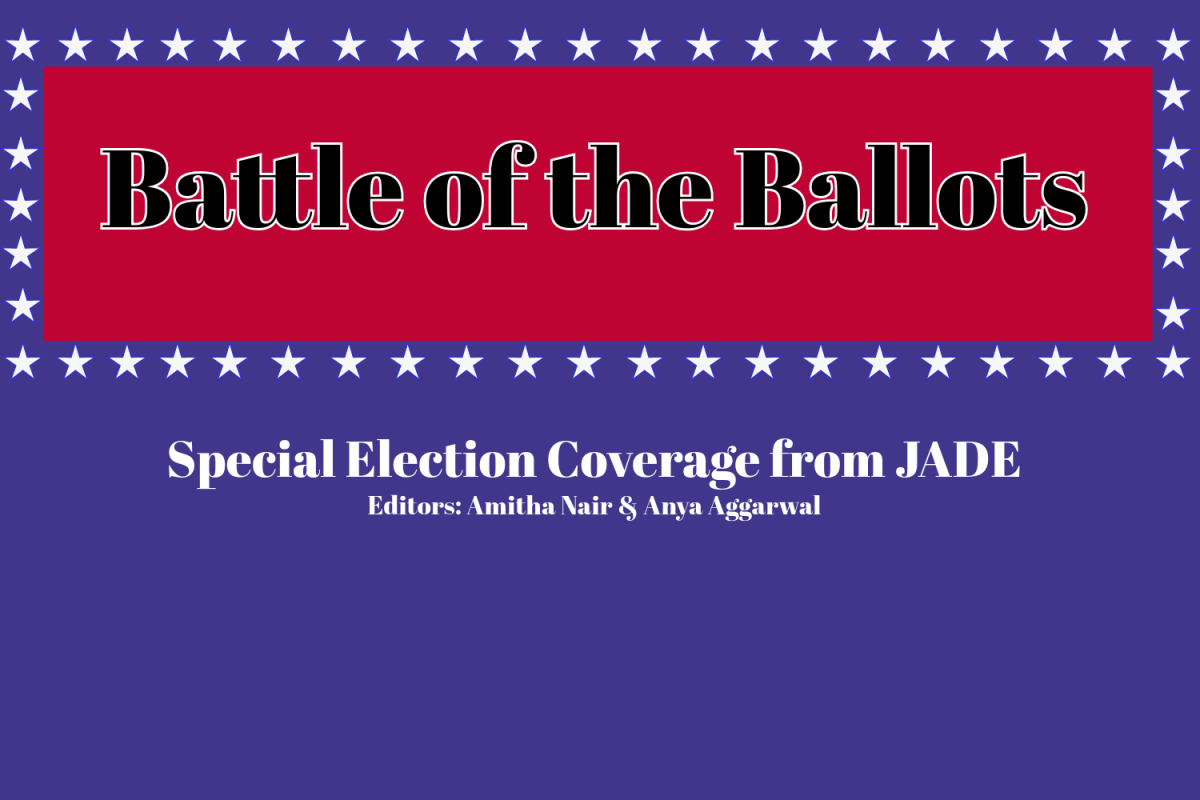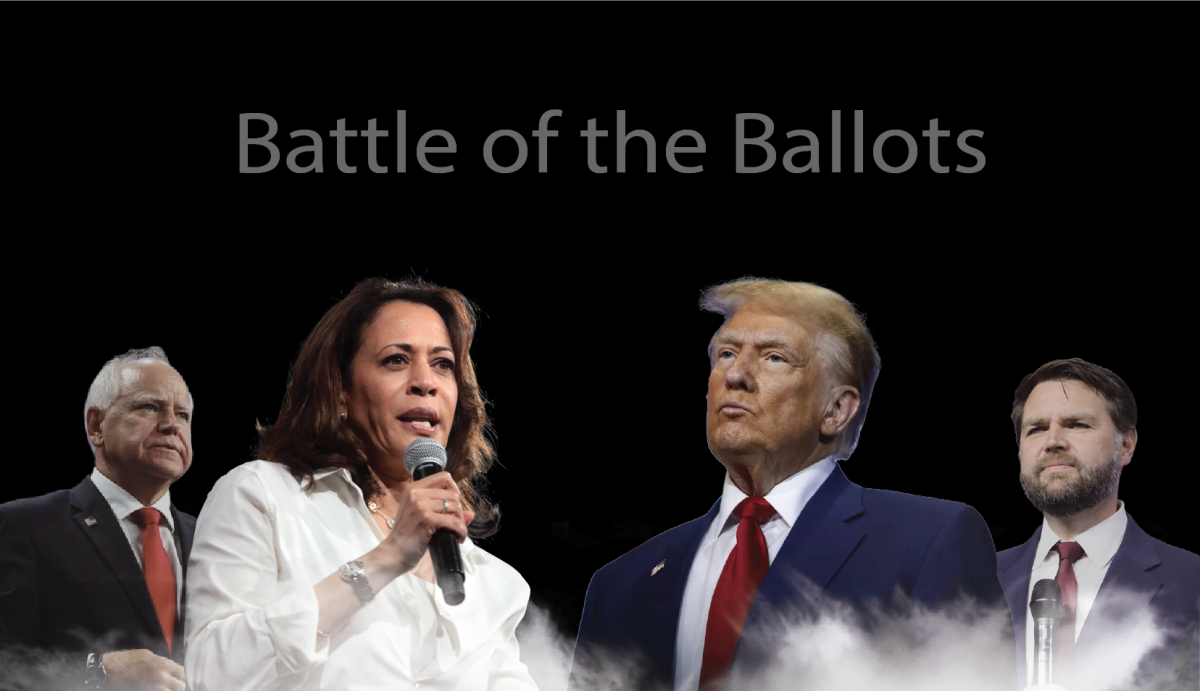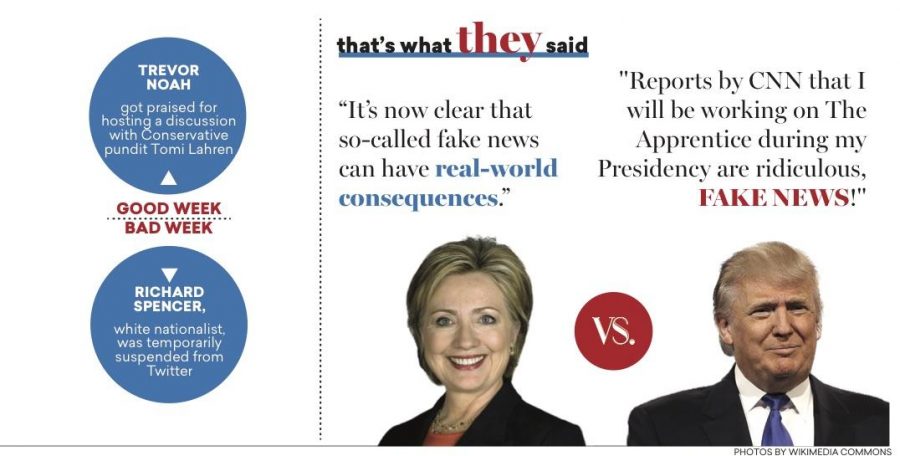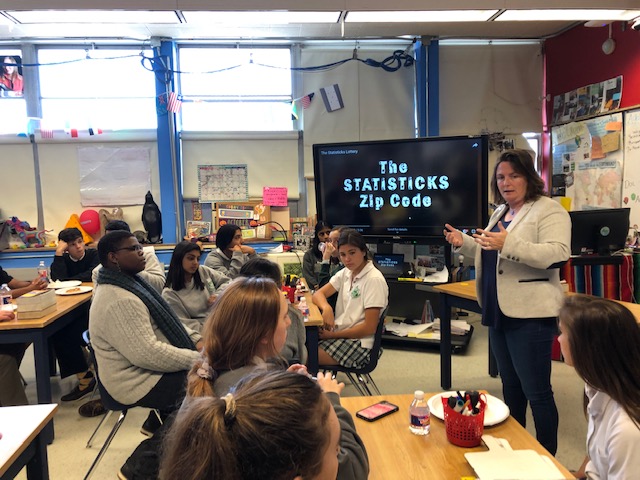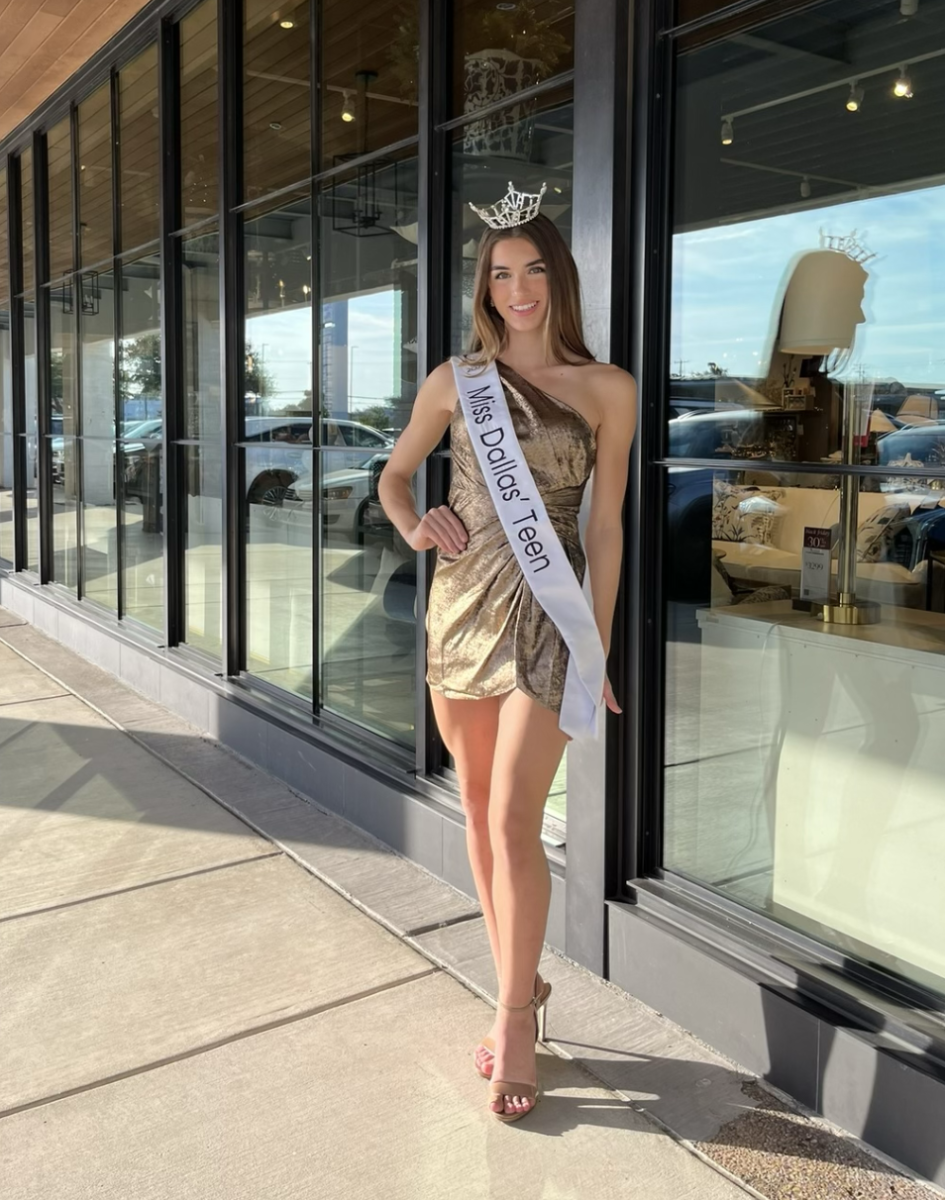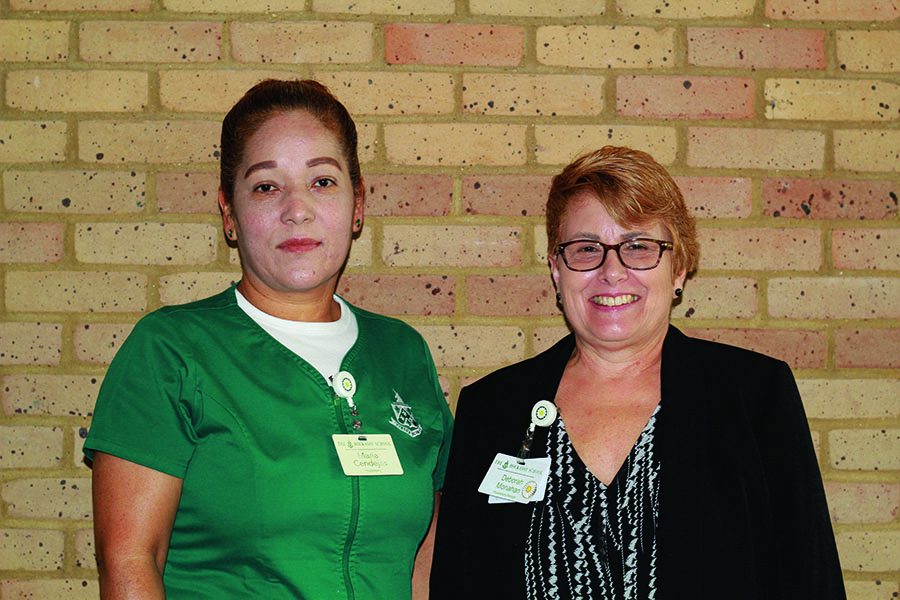Part 3: Social Media & Celebrity Endorsements
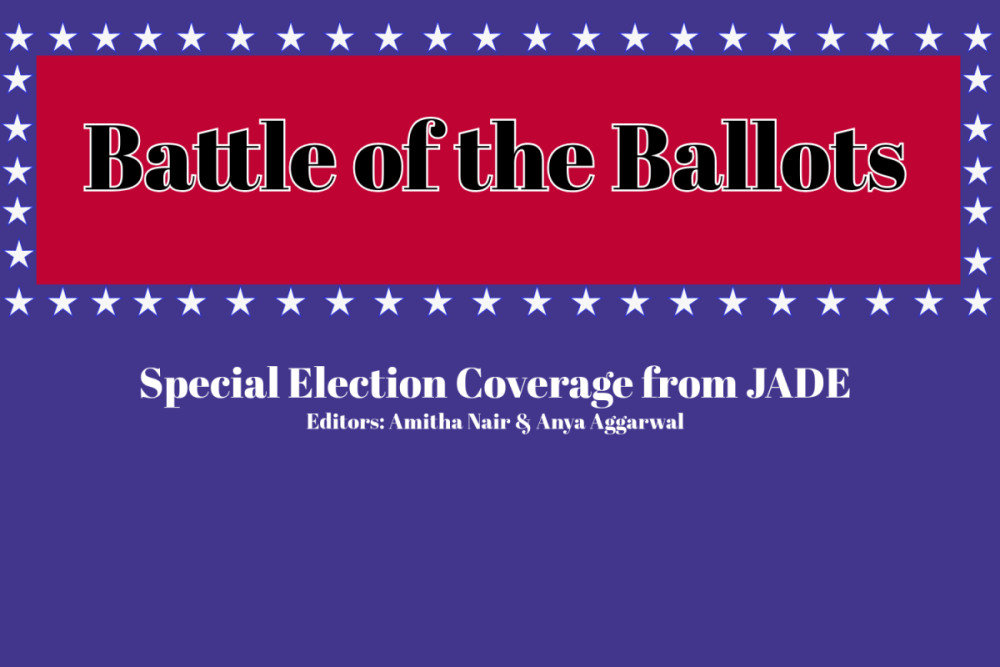
A Rising News Source:
With the election rounding the corner, finding reliable sources is more important than ever. Traditionally, information on current events comes from newspapers or websites. However, social media has grown as a source of news for two main reasons: convenience and accessibility.
Instead of reading an entire article, many now find their news in the short, catchy headlines on social media, believing that they can be fully informed from a few small sentences. It is easy to form strong opinions based on the headlines, but often, they omit crucial information.
Social media is also easily accessible. Instead of news stories being trapped behind a paywall, creating an account and hitting the search buttons is an easy way to find information on current events more quickly.
Senior Samantha Wu was a social media manager for Summer at Hockaday for their Facebook and Instagram during this past summer. She was responsible for taking photos, producing content, and making the posts.
She recognized the importance of ensuring that the content made sense from every viewer’s perspective and being mindful of her audience.
“I was in the mindset of how someone my age would interact with information,” Wu said. “Then I realized I needed to think about it from the mindset of someone like a parent.”
She also emphasized the necessity of double-checking posts to maintain accuracy, because it was easy to make mistakes in a fast-paced job.
“I always double-checked everything before I posted it, and had someone else check it as well, to make sure everything was correct,” Wu said.
In addition, she explained that social media contributes to miscommunication and misinformation because it is easy to not get the full story from a small post.
A 2019 study by the Pew Research Center stated that over half of Americans believed one-sided news or inaccurate news to be a problem. It’s all about grabbing attention to get clicks.
Determining the trustworthiness of a source is also more difficult on social media.
Because a lot of news is reposted, it is often hard to trace the information back to the original source, and even harder to test its veracity.
However, there are also benefits. Social media allows news to reach a wider audience by making it more accessible. Apps and websites like Instagram, TikTok, YouTube and Facebook are all very popular, allowing news to reach both older and younger generations.
Presidents vs. Perception
Social media is not just a news source, but also a platform to promote political campaigns.
Both Kamala Harris and Donald Trump have recognized the importance of social media in their campaigns, and its ability to appeal to Generation Z. With Gen Z characterized by their digital upbringing, we see extensive efforts from politicians to bolster their campaigns via social media.
In an example of the intense “media war,” on Sept. 20, former President Donald Trump reposted a doctored image of Kamala Harris on his Truth Social site – a platform he launched after being banned from other mainstream platforms following the January 6, 2021, attack on the U.S. Capitol.
The image shows a younger Kamala Harris posing with another woman and Sean “Diddy” Combs – who was recently indicted on charges of sex trafficking, racketeering and transportation to engage in prostitution. It included the caption: “Kamala, doing the Diddy? Madam Vice President, have you ever been involved with or engaged in one of Puff Daddy’s freak offs?”
The actual photo, however, was taken in 2001 and includes Montel Williams – Kamala’s then boyfriend – and not Combs. The edit replaced Williams’ face with a photo of Combs.
This is not the first time Trump has used A.I. generated photos to bolster his campaign.
In August, he previously came under fire for reposting a series of doctored photos on his Truth Social account that showed Taylor Swift endorsing his 2024 presidential run. Grady Trimble questioned the former president in an interview that aired on FOX Business Network’s The Evening Edit regarding the photos.
“I didn’t generate them. Somebody came out,” Trump said. “They said, oh, look at this. These were all made up by other people. A.I. is always very dangerous in that way.”
Trump also utilizes his social media accounts to criticize Harris’s policies.
On Sept.28, he posted a 1 minute, 30 second video on Instagram that criticized her position on immigration, implying that she is too ignorant to properly address border control concerns.
Although Harris mostly utilizes her social media accounts to promote her policies, she also engages in mocking her opponent.
In a Sept. 30 post on X, formerly known as Twitter, Harris criticized Trump’s intention to end the Affordable Care Act. She asked a rhetorical question to highlight it as a ridiculous notion: “He’s going to threaten the health insurance of 45 million people based on a ‘concept’?”
Harris’s campaign takes jabs at Trump in multiple other posts on her Truth Social account regarding attendance at his rallies. On Aug. 6, she posted two photos comparing the Democratic and Republican rallies held at Temple University’s Liacouras Center in Philadelphia, Pennsylvania. The post highlights the empty seats in the top tier section, ridiculing Trump for the lack of attendance. Following that post, her Truth Social account featured a multitude of videos that show Trump rally attendees leaving. One caption from a Sept. 23 post claimed they left during the former president’s speech “out of exhaustion and boredom.”
In a more recent video from Sept. 30, a snippet from “Il barone rosso” by Luciana Michelini – a popular audio used on multiple social media platforms to convey ridiculousness and hilarity – was used in the background. Any posts pertaining to the former president often tag him. The pointed remarks clearly highlight the posts as callouts.
In consideration of the importance of perception, both Donald Trump and Kamala Harris constantly use social media to bolster their campaigns. Both candidates have active social media accounts on multiple platforms that are used to either promote themselves or degrade their opponent.
Chris Leal: Setting Your Own Terms
Chris Leal, the president of the Dallas County Young Democrats, currently works for a London based consulting firm. Previously a middle school teacher at Dallas ISD’s Longfellow Career Exploration Academy, Leal has significant experience in politics. Finding a passion in organizing young voters, Leal believes social media has the capability of reaching the young generation unlike any other platform.
“Having an effective and authentic approach to social media is crucial for a campaign,” Leal said. “Sometimes that means being vulnerable or real.”
Leal, running for Texas House in 2022, has first-hand experience in leading a campaign.
“The biggest challenge of a campaign is to get your name and your message in front of voters,” Leal said. “They need to know who you are and what it is you want to do for them, and social media is an incredibly important tool in trying to do that.”
Leal believes it is important for teams of both candidates to regard social media as a priority rather than an afterthought.
“For Kamala, I think there is opportunity for her to show voters who she is, what her values are, particularly among young voters,” Leal said. “I hear her social media team is led by Gen Z staff, which I think is perfect.”
For campaigns combatting misinformation, Leal thinks it is important to focus on building your own case rather than defending yourself to critiques.
“From my perspective, the ideal tactic is to avoid engaging directly with your opponent’s narrative,” Leal said. “Try to set your own terms and definitions for the conversation that you’re trying to have.”
Leal feels that Young Dems, an organization focused on attracting young voters, is leveraging social media to ensure a higher voter turnout this year.
“We use social media to promote events, our actions, and ways to get involved. We also use it to make statements about our values on people, policies or positions,” Leal said. “We do that in order to try to show young voters that we see them and that we care and that we are trying to represent that perspective in this space.”
Rather than working to please everyone, Leal explains that social media is a platform for both convergent and divergent voices to express themselves. Earlier this year, when President Joe Biden was running for re-election, the organization posted a statement asking for Biden to step aside and let Kamala Harris be the nominee.
“It was a popular post. We put the statement out, and press covered it, and it got a lot of engagement,” he said. “We also got a lot of angry comments, mostly from older Democrats and from people involved with the local establishment.”
To Leal, social media has numerous pros and cons, but he believes it has been beneficial to reaching a wider audience.
“Overall, I do believe social media has been good for politics. It has helped democratize the political process,” Leal said. “Social media is free, and even if you pay to promote content on it, you can still reach a very large, targeted audience for very cheap.”
When Leal ran for the Texas House, he wanted to reach a wide base of prospective voters in his campaign.
“[Social Media] made it easier for people like me to run for office, for young people to run for office, for people without millions of dollars to run for office,” Leal said. “On that basis alone, it has been incredibly positive.”
Jason Villalba: Reaching a Wider Audience
Jason Villalba, a former Texas State Representative, now serves as the CEO and Chairman of the Board for the Texas Hispanic Policy Foundation as well as a partner with the law firm of Frost Brown Todd, LLP. Villalba believes in the importance of utilizing nano social influencing in a meaningful way to create a connection with voters.
“What we’ve learned with respect to grand messages, messages that reach entire universes of populations, is that they are beneficial, but social media is much better at reaching those carefully curated populations than television commercials,” Villalba said.
In the past, candidates have focused much of their campaigning on television and mail outreach strategies. As social media’s popularity rises, their strategies are now becoming increasingly centered around social media.
“Kamala’s team, for the first time in history, is spending almost as much money on her social media as they are on television,” Villalba said. “Why? Because they believe their voting electorate is more likely to be comprised of people who utilize and who are engaged by social media than old school television.”
When Villalba was running for his position as a Texas State Representative, he had a noticeably different technique compared to the strategies of candidates today.
“In my own campaign, from start to finish, we spent a million dollars and a lot of that was going to be mailed flyers, because we covered a smaller geographic area,” Villalba said. “We would do radio, and then we would do social media. Back in those days it was just for pure ads to buy time on Facebook.”
For the Texas Hispanic Policy Foundation, the techniques he uses now has significantly evolved to reach a wider audience.
“A lot of the times we are looking for people that might be interested in what we’re doing,” Villalba said. “With a very simple algorithm, we can pull people in. Reported factors that we can put into one blender and create a search and, all of a sudden, we are getting 50 new people.”
Based on the region and location of social media users, these algorithms make an educated guess of race, gender, and interests, which often turn out to be correct.
To Villalba, misinformation in campaigns is not just a localized issue between two candidates but an international issue with much wider ramifications.
“The issue is foreign influencers who pour money into our system to try to get it blown up,” Villalba said. “This happened last week where they put together an AI video that said when Kamala was 22 years old, she was in a car accident and hit a pedestrian and ran.”
He feels that this type of deception causes people to see what they want to see and increases the divide between both sides.
“This kind of misinformation is creating problems for not only the people they are against, but really everybody because now we don’t believe anything we see on social media,” Villalba said. “The best way to counter this is to [as a voter] make sure your information that you are putting into the system and digesting is truthful, verifiable and accurate.”
Particularly for this election, Villalba thinks social media will play a much bigger role compared to elections of the past.
“There’s no way around the fact that young voters are being moved in ways that never would have been possible before because of social media influence, because of the way that young people digest information,” Villalba said. “The data shows that you’re learning about politics in this election through what you see on these sites, not through digesting television programs.”
Heading into the 2024 election, the real challenge isn’t about who’s on the ballot. It’s about how we navigate the sweeping information landscape of social media where we shape our choices.
The History of Political Endorsements
Every four years, a presidential election fills our minds and screens.
In addition to constant ads and clips of politicians debating and political endorsements by celebrities, prominent figures are also a staple of American presidential elections.
According to History.com, the earliest recorded presidential endorsement was Al Jolson’s endorsement of Warren Harding in 1920. Jolson also wrote a political jingle for the campaign.
Jolson, with a group of actor friends, helped engage in door-todoor campaigning for Harding.
Since then, celebrities spanning from Judy Garland to Megan Thee Stallion have expressed support for their presidential candidate of choice.
Additionally, the dawn of the social media age has widely expanded the influence of celebrities and has broadened the potential reach of political endorsements.
While endorsements have been around for a long time, they have evolved into different forms. Endorsements can come from a range of individuals such as fellow high-profile politicians or celebrities as well as large groups such as labor unions or professional associations.
Some of these endorsers choose to stamp their approval in a formal way like through an official news source or contributing to a specific politician’s support rally.
Texas Governor Greg Abbott officially endorsed the former President Trump at the Texas-Mexico border. He spoke about the protection and security of the border, ultimately supporting Trump’s viewpoints.
“We need a president who is going to secure the border. We need a president who is going to restore law and order in the United States of America,” Abbott said. “We need a president who is going to restore world peace as opposed to this outbreak of warfare under Joe Biden. We need Donald J. Trump back as our president of the United States of America.”
Other public figures choose to take a simpler route of posting their support on social media.
Celebrity Taylor Swift called Kamala Harris a “warrior” due to their alignment in views and Swift’s advocacy for Harris instantly sparked conversations online.
“I’m voting for @kamalaharris because she fights for the rights and causes, I believe need a warrior to champion them,” Swift posted.
According to BBC, 24 hours after her post, more than 340,000 people had visited the voter website through Swift’s custom link.
However, Dr. Cal Jillson, a political science professor at SMU, found Taylor Swift’s endorsement of Kamala Harris to be particularly notable.
“A couple of weeks ago, some 400,000 people went to a voter registration website that she had linked on her online endorsement,” Jillson said. “And so, if those people did register to vote, and it turned out on election day, voted overwhelmingly for Harris, that might move the needle a little bit.”
Despite the often-star-studded nature of endorsements, many argue that they’re not a critical part of elections.
“Political endorsements generally don’t have a large impact on the outcome of an election,” said Jillson “Most voters are pretty well committed either to the Democrat or the Republican Party, and they’re hard to move off that commitment.”
The use of political endorsements is ever-changing, the popularity of endorsements has changed over time. Dr. Matthew Wilson, an SMU American Politics Professor, thinks that the role of political endorsements has a decrease in influencing voters then it once did.
“Endorsements today mean less than they once did,” Wilson said. “We are a very polarized nation today, so many people will simply never consider a candidate from one party of the other, no matter who endorses them.”
But a place that seems to hold the power of endorsements at a similar level throughout the years is the local level, such as governors 11 and mayors. “Endorsements tend to matter more in local contests, where voters are likely less familiar with the candidates and have fewer campaign resources,” Wilson said.
Similarly, endorsements seem to affect different act group in contrasting ways.
“Endorsements of people focused on the younger generation are, for the most part, pretty irrelevant to older voters. How much they matter even to younger voters is an open question,” Wilson said.
But a good question to be asked is what is the most effective endorsements? If endorsements are on the decrease and it is more helpful at a local level then national, then what is the point?
The truth is there is no right answer, each party interprets the need for political endorsements differently and they receive this in different ways and from many different areas.
“Trump’s personal endorsement has proven very valuable in Republican primaries and organizational endorsements can be especially impactful if they are accompanied by resources,” Wilson said. “Celebrity endorsements are of more limited value. If starts from the film, T.V. and music industries could reliably sway the outcomes of elections, Democrats would never lose.”





